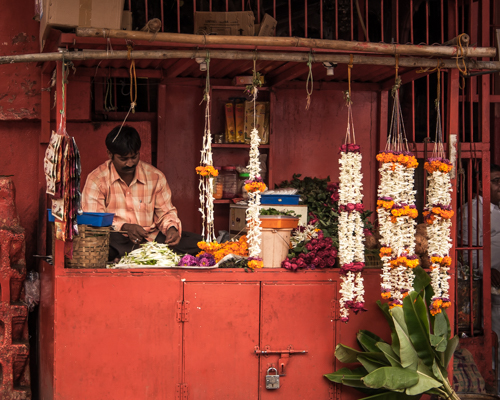Hundreds of missions organizations and millions of dollars have poured into India in recent decades. Countless churches have been planted. But are they healthy? What kind of roots have they developed?
Depending on how you measure or whom you ask, India has between 26 million and 64 million Christians—impressive until we consider the nation’s population: 1.3 billion. While India is only half the size of the continental United States, it boasts more than four times the U.S. population. Yet only around 2 percent of Indians claim Christianity, while some 79 percent hold to Hinduism and 12 percent to Islam. Its dense population and complex cultural stratification make it difficult to pin down estimated church growth.
But one thing seems clear: Churches need a more biblical focus for healthy congregations.
While India is only half the size of the continental United States, it boasts more than four times the U.S. population. Yet only around 2 percent of Indians claim Christianity.
Raj Karan grew up in India and currently studies at Southern Seminary (SBTS) in Louisville, Kentucky. “People are trying to plant churches in India,” he observes, “but the churches are like mushrooms: They grow quickly but after three days they die.”
From Sin to Service
Karan grew up Hindu and suffered the loss of his father as a 5-year-old. He and his mother then began attending a church until they experienced difficulties from family members. But Karan was not interested in Christianity until he began university and soon suffered the effects of sin.
“I got freedom from home for the first time. . . . Bad friendships and the sin of my own heart made my life miserable,” Karan recalls. “I was sick for several months.”
After a year at university, Karan heard the gospel, repented of his sins, and put his trust in Jesus. “The Lord changed my life and showed me how to follow his will and not live for myself,” he said.
Karan worked in his field of study, engineering, for two years before spending six years at The Leprosy Mission to serve India’s most marginalized people. He also served as a pastor in a North Indian local church for five years. His trains now in seminary with a long-term goal of working in Northern India.
Recognizing Unbiblical Christianity
“For the last 40 or 50 years, there is [Christian] work going on in India,” Karan said. “But why aren’t the churches growing biblically? Why aren’t they healthy?” He believes lack of training and resources for pastors is the main reason: “They have their Bibles, but not any other tools,” which makes India a breeding ground for unhealthy and even unbiblical “Christianity.”
‘Along with unbiblical “church planting movements” and false reporting to the West, the greatest challenge the Indian church faces is wrong teachings and false doctrine.’
“Along with unbiblical ‘church planting movements’ and false reporting to the West, the greatest challenge the Indian church faces is wrong teachings and false doctrine,” Karan said. “The prosperity gospel is growing and drawing many people, as it fits well with the Indian culture, but there is hardly any solid teaching on the doctrine of salvation, or the importance of the local church. We have a huge need for gospel-centered resources and training pastors.”
Healthy Provisions
Karan and other Christian workers in India have received theological famine relief by connecting with TGC International Outreach (TGC IO). In 2016, he organized the distribution of 4,000 ESV Study Bibles and 20,000 books in Indian languages like Tamil, Telugu, Hindi, Manipuri, and Nepali. These biblically faithful resources—written in the heart languages of prospective pastors and church planters—will serve to strengthen the churches of India as the healthy influence spreads.
These resources include three books by John Piper:
- Finally Alive addresses conversion and refutes aberrant teaching that is especially common in places like India where syncretism flourishes.
- Fifty Reasons Why Jesus Came to Die instructs both believers and non-believers about what God accomplished in the cross of Christ.
- Seeing and Savoring Jesus Christ helps Christians to know and love Jesus as he is portrayed through God’s Word.
The books and Bibles have already made a difference. Recipients report improved Bible study and sermon preparation. One student said: “I used to ignore the Old Testament as I found it difficult to understand. Now I love reading the Bible fully.”
Through the resolve of men like Karan and TGC IO’s partners on the ground in India, the work of strengthening the churches will continue. A Telugu edition of David Helm’s One to One Bible Reading is in the final stage of translation and proofreading.
After his return to India, Karan hopes to work with local churches to train indigenous pastors and plant healthy churches. “By God’s grace,” he says. “We are now better equipped to train them.”
Editors’ note: The Gospel Coalition has copies of Prosperity? in English, available for free giveaway, through your missions efforts. Inventory is available in India as well as other locations for you to take overseas and put in the hands of church leaders. Join us in the cause of Theological Famine Relief.
Related:
- The Gospel in India (Aubrey Sequeira)
- The Privilege of Persecution in Northern India (Chris Davis)
- Fueling Evangelism in Southeastern India (Patti Richter)





































